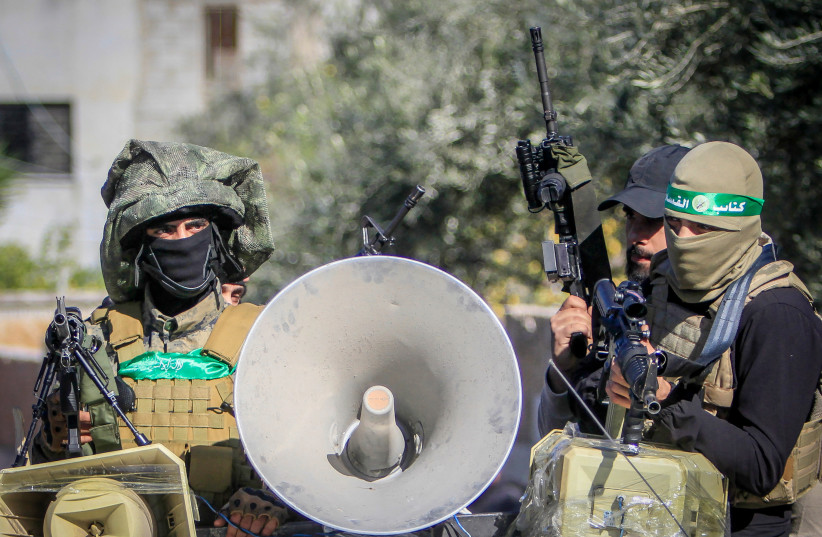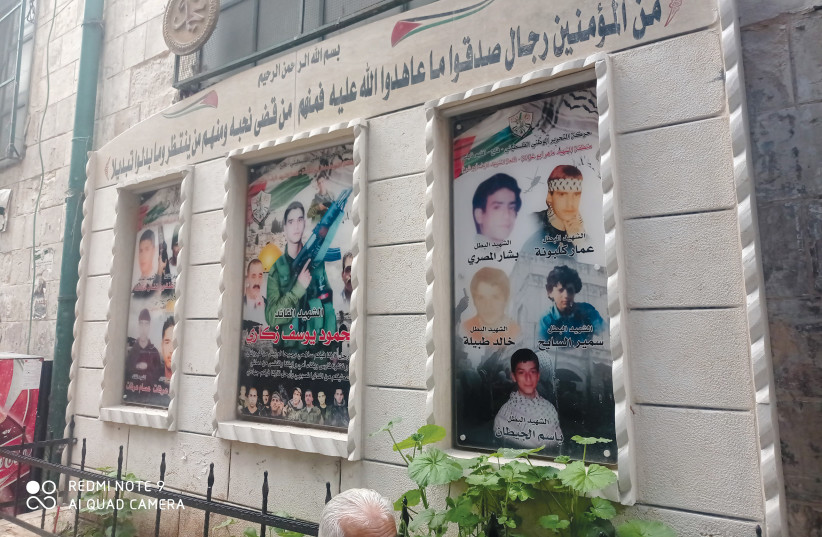The Palestinian Authority said on Saturday that it will proceed with its decision to end security coordination with Israel, regardless of demands by the US and European Union to reverse the move.
The decision to end the security coordination was announced last Thursday after an emergency meeting of the Palestinian leadership in Ramallah. It came in response to the killing of nine Palestinians, most of them gunmen, during an Israeli military operation in Jenin Refugee Camp earlier in the day.
“The Palestinian leadership affirmed the continuation of implementing the decisions it took during its meeting last Thursday, and it will continue to work with international and Arab parties to provide support and protection for the Palestinian people,” the Palestinian leadership said in a statement after holding another meeting in Ramallah on Saturday to discuss the latest tensions and violence.
Palestinian leadership points fingers at Israel
The Palestinian leadership said it holds Israel fully responsible for the “dangerous escalation because of its crimes,” noting that 31 Palestinians have been killed by Israeli security forces since the beginning of January.
The Palestinian leadership also condemned Israel for is “colonial settlement actions, policies of ethnic cleansing and apartheid, and the assaults on Islamic and Christian holy sites.”

“These policies are a result of the Israeli occupation government’s evasion of its commitment to implement the signed agreements and its violation of the resolutions of international legitimacy,” the Palestinian leadership said.
It warned that Israel’s current policies and measures “will lead to further deterioration and threaten security and stability in the entire region.” It also repeated is appeal to the international community and the US administration to oblige the Israeli government to “stop its unilateral actions.”
A senior Palestinian official told The Jerusalem Post that Ramallah believes that US Secretary of State Antony Blinken, who is expected to visit the region this week, will demand that the Palestinians reverse the decision to halt security coordination with Israel.
“The US administration has informed the Palestinian leadership through various channels that it’s unhappy with the decision to stop the security coordination,” the official said.
US Assistant Secretary for Near Eastern Affairs Barbara Leaf told reporters in Washington that the US administration does not think the PA’s decision “is the right step to take at this moment.”
“Far from stepping back on security coordination, we believe it’s quite important that the parties retain – and of anything, deepen – security coordination,” she said. “And, obviously, we’ll be continuing to PA and Israeli officials all the way up through our arrival in the ground in a couple of days.”
The European Union has also called on both parties to do everything possible to de-escalate the situation and to restart security coordination.
The assumption in Ramallah is that Blinken will raise the issue during his meeting with PA President Mahmoud Abbas, the official told the Post.

Expected responses from PA to international leadership
The Palestinian leader will tell Blinken that Israel bears full responsibility for the latest escalation because of its “daily incursions and killings” in the West Bank, the official said.
Abbas will also repeat his demand that the US administration fulfill its commitments and promises to the Palestinians, including pressuring Israel to refrain from unilateral measures, settlement expansion, and changing the status quo at the Al-Aqsa Mosque compound (Temple Mount), the official said.
In addition, Abbas will renew his demand that the Americans reopen the US Consulate General in Jerusalem and the PLO diplomatic mission in Washington, which were closed by former US President Donald Trump’s administration, the official added.
Some Palestinians, meanwhile, expressed skepticism regarding the decision to halt the security coordination.
While some argued that the move was insufficient and that the PA leadership should cut all ties and cancel all signed agreements with Israel, others said they don’t believe the PA is serious about ending the security coordination.
Hamas, Palestinian Islamic Jihad and other Palestinian groups urged the Palestinian leadership to immediately implement the decision to end the security coordination and to take additional measures, including the abrogation of all the agreements and revoking the PLO recognition of Israel. They also urged the Palestinian leadership to work towards supporting the “resistance” activities against Israel and end the dispute between the ruling Fatah faction and Hamas.
The decision to end the security coordination with Israel was not the first of its kind.
In 2020, the PA halted the security coordination in protest of the Israeli government’s since-shelved plan to extend Israeli sovereignty to some parts of the West Bank.
The PA, however, backtracked a few months later and announced that it was resuming the security coordination with Israel after “political contacts” by Abbas. PA Prime Minister Mohammad Shtayyeh said then that the decision to resume the security coordination was taken after the Palestinians received a letter from Israel saying it is ready to commit itself to the signed agreements.
The PA’s political rivals have long condemned the security coordination as a form of “collaboration” with Israel and urged the Palestinian leadership to halt it. In the past, Hamas has repeatedly demanded an end to the security coordination as a precondition for forming a Palestinian unity government with Abbas’s Fatah faction.
In the past eight years, Abbas has also faced pressure from Fatah and PLO officials and institutions to halt the security coordination.
In 2015, 2018 and 2020, the PLO Central Council recommended an end to the security coordination, citing Israel’s failure to abide by the signed agreements with the Palestinians.
